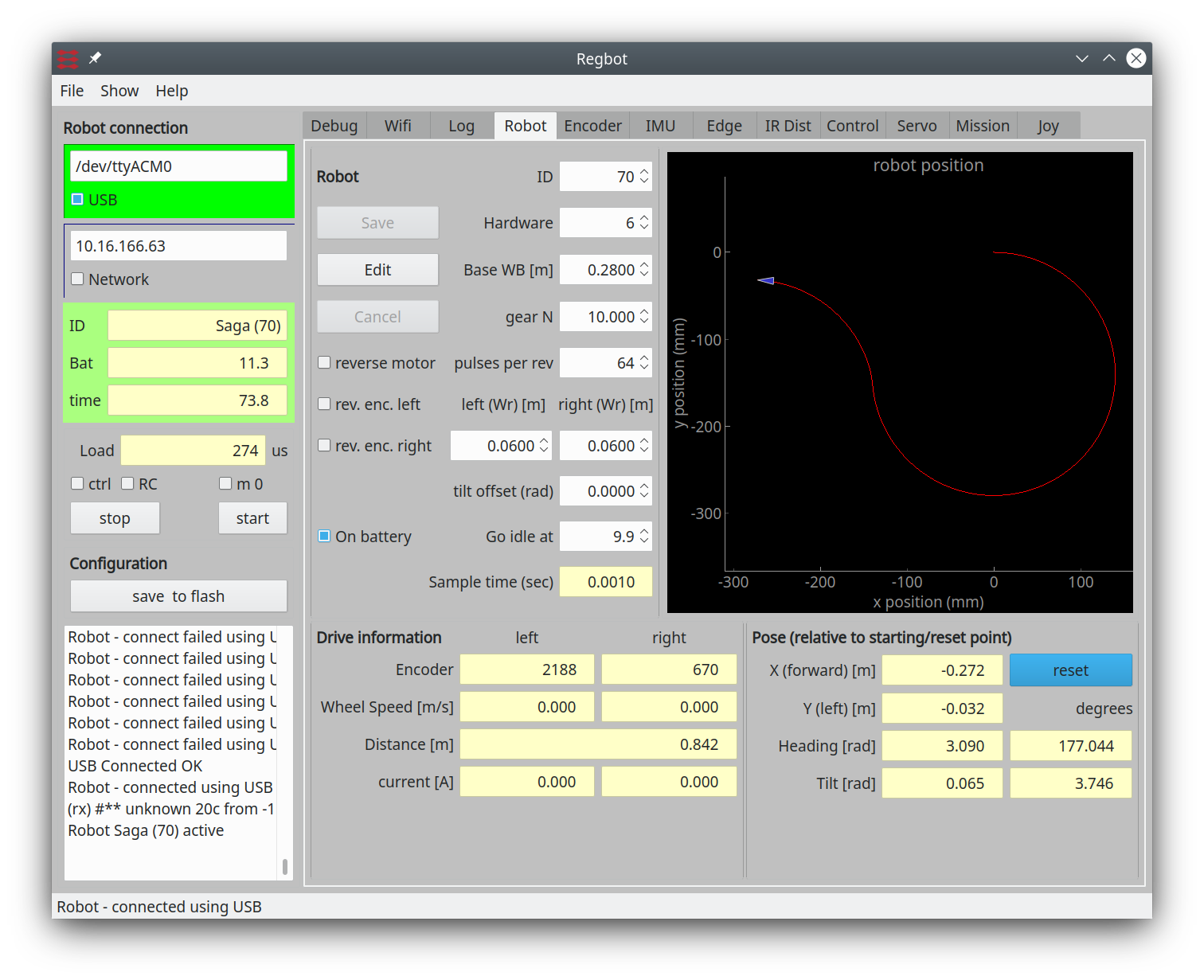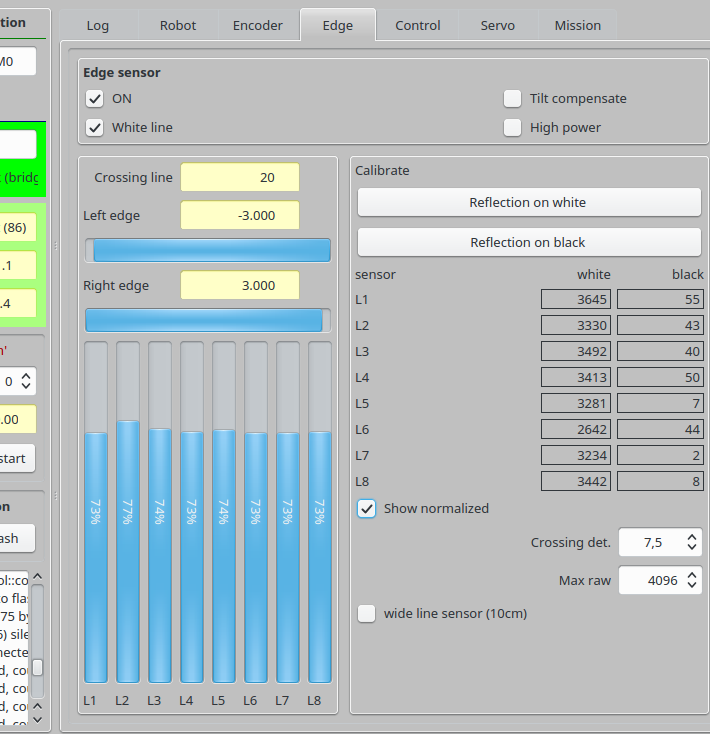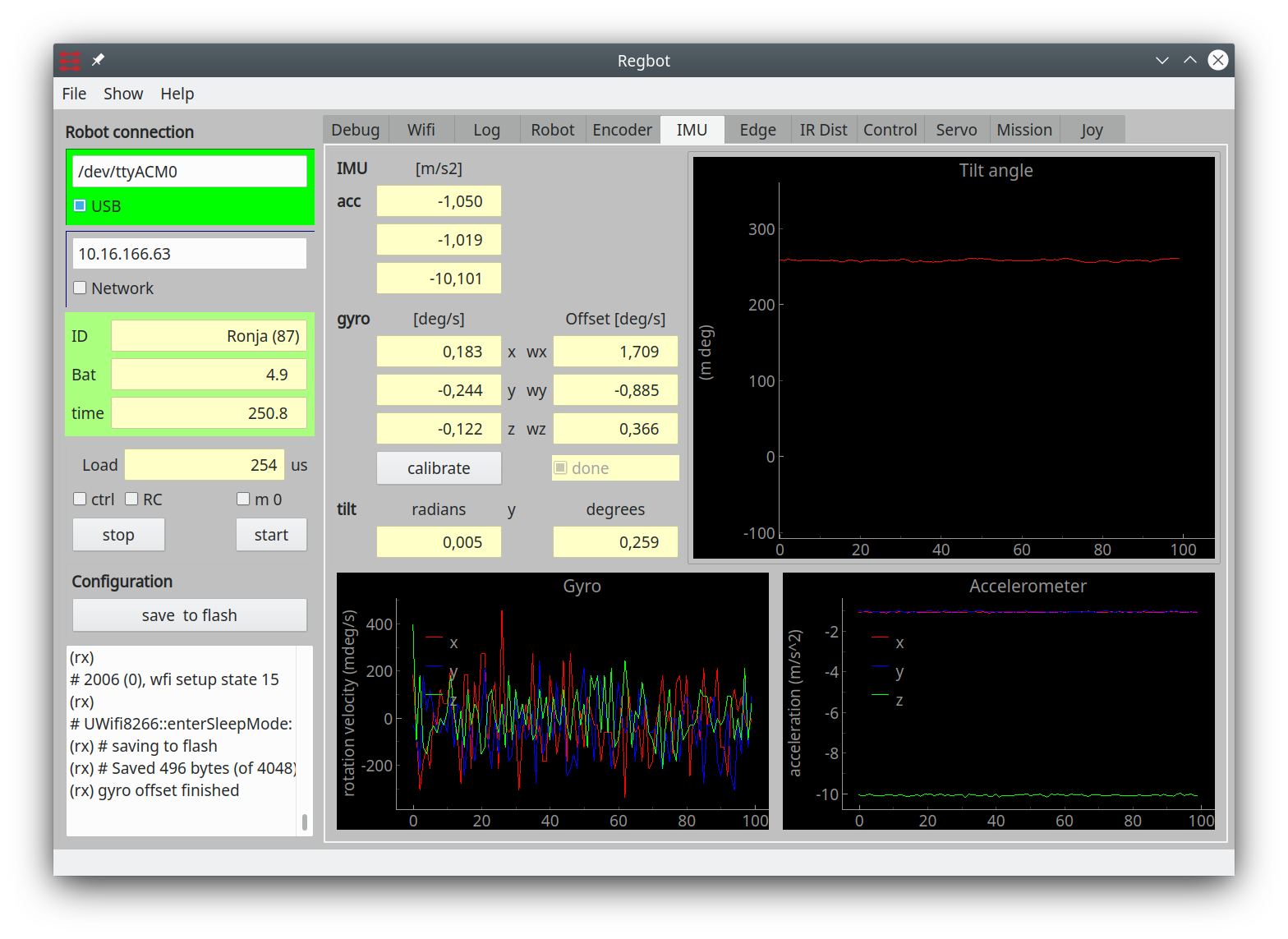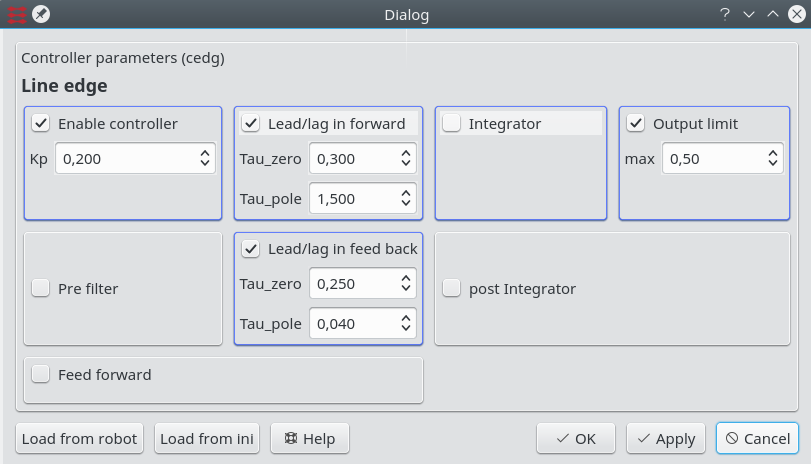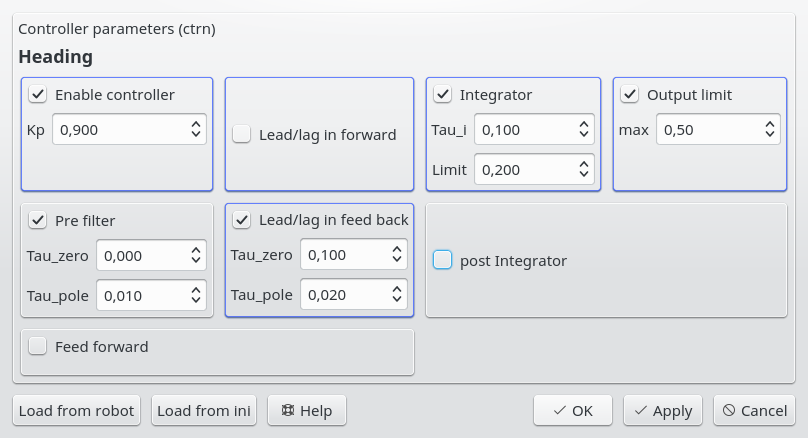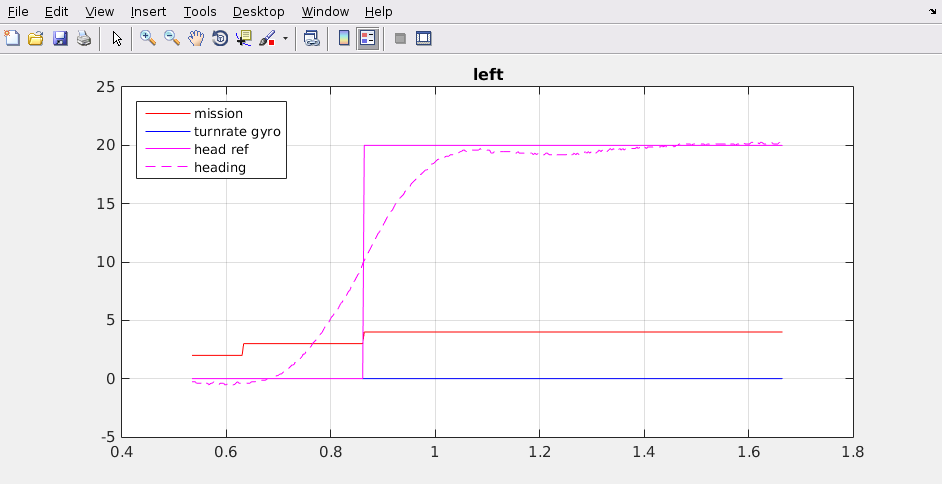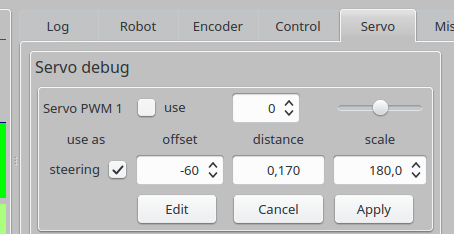Regbot settings
(→Control issues) |
(→Control issues) |
||
| Line 19: | Line 19: | ||
[[File:line_sensor.png]] | [[File:line_sensor.png]] | ||
| + | |||
| + | == IMU calibrate == | ||
| + | |||
| + | The gyro can be calibrated only. | ||
| + | Let the robot stand still and press the calibrate button. | ||
| + | |||
| + | [[File:imu_calibrate.png]] | ||
== Control issues == | == Control issues == | ||
Revision as of 18:24, 6 February 2018
Back to Robobot.
This is some suggestions for changed settings for Robobot.
Contents |
Robot configuration
Metric setup
The distance between driving wheels are different from a Regbot - on version 4 WB is ~21cm.
Line sensor
The line sensor should be calibrated with a white paper (or tape line) and either a black line or looking into nothing. After that "show normalized" should all sensors show about 75%.
Crossing detect should be ?
IMU calibrate
The gyro can be calibrated only. Let the robot stand still and press the calibrate button.
Control issues
Some examples of control settings.
Velocity control works fine with "Feed forward" = 4 and a Kp = 15 - and keep the output limit = 9V (or less).
Edge control
For higher speed in the range 0.7-0.9 m/s the following control settings could be used.
With the new 10cm line sensor optimal setting is not found, a kp=0.1 - 0.15 seems OK, output limit should not be set.
The control uses a Lag-controller to decrease the static gain by a factor 5 (a pole with a time constant of 1.5 sec and a zero with a time constant of 0.3 seconds). This means that the high frequency gain is Kp*0.3/1.5 = 0.06.
The gain is further scaled by the speed (from firmware version 604), so that the gain is reduced to half at 0.5m/s, but the filter times are maintained. This is probably a bad solution, as the response probably is more distance driven than time driven.
A test script to could be:
thread=1 vel=0.01, acc=5.0, log=50.0: time=0.2 vel=0.9, edger=1, white=0: dist=10.0, xb=20 vel=0,event=7 : xb<10 :vel< 0.1 vel=-0.3,tr=0.1:turn=60 vel=0.3,tr=0.1:turn=60 vel=-0.3,tr=0.1:turn=60 vel=0.7, edger=-1, white=0: dist=10.0, xb=20, log=0
The mission follows right side of line,
- in a left curve (1mØ) until crossing a line
- wait for crossing line to disappear,
- and velocity reach 0
- make a 3-point 180 degree turn
- follow the other side of line - now a right curve (until log is full or 10 meters or crossing another black line)
The difference between a left and a right curve is the "edger=1.0" and "edger=-1.0", this makes the robot follow the curve with an offset of 1cm towards the center of the curve (more left in a left curve). This gives more space for overshoot when hitting the curve - the sensor range is about +/- 2cm.
If the line is no longer valid, then the last curvature is maintained, i.e. there is a chance that the the line will be re-found.
Heading control
Heading control is not used during a tr=xx based turn, but after such a turn the heading control maintains the end heading. The end heading is the start heading plus the turned angle.
While driving straight, then the heading control attempts to keep the heading.
Heading control is somewhat speed dependent, these paramaters seems to be good at about 0.6 m/s.
Figure 3. Heading control parameters for OK turns at a velocity of about 0.6 m/s. The controller is a PI-Lead controller with a weak pre-filter.
A 60 degree turn with an acceleration limit of 1m/s^2 and a turn radius of 0.2m makes a turn like this:
Figure 4. The dotted line is the resulting heading, the magenta line is the target heading (when not in a turn. The red curve is the mission line number in the script below. As the acceleration is rather slow (1m/s^2) the the turn radius is not reached when half the turn is reached, so at this time the turn is deemed finished, so that there is time to recover. At this time the heading control is reengaged, and takes the heading to the desired 20 degrees. The x-axis is in seconds and the y axis in degrees.
This curve is generated with the following script:
thread=6 : time=0.01 vel=0.6, acc=1.0: dist=0.1,time=1 log=3.0: time=0.1 tr=0.2: turn=20.0 : dist=0.3, log=0
Servo steering
* The steering offset should be set so that steering wheel is pointing forward (when driving forward), and * The distance is the distance from rear wheels axle to front wheel axle (~17cm). * scale should be set to set so that when turning with a radius equal to wheel base, then steering wheel should be perpendicular to not rotating wheel.
